The Biggest News Stories Of 2016, According To Some Of Australia’s Best Journalists
Journalism is far from dead.
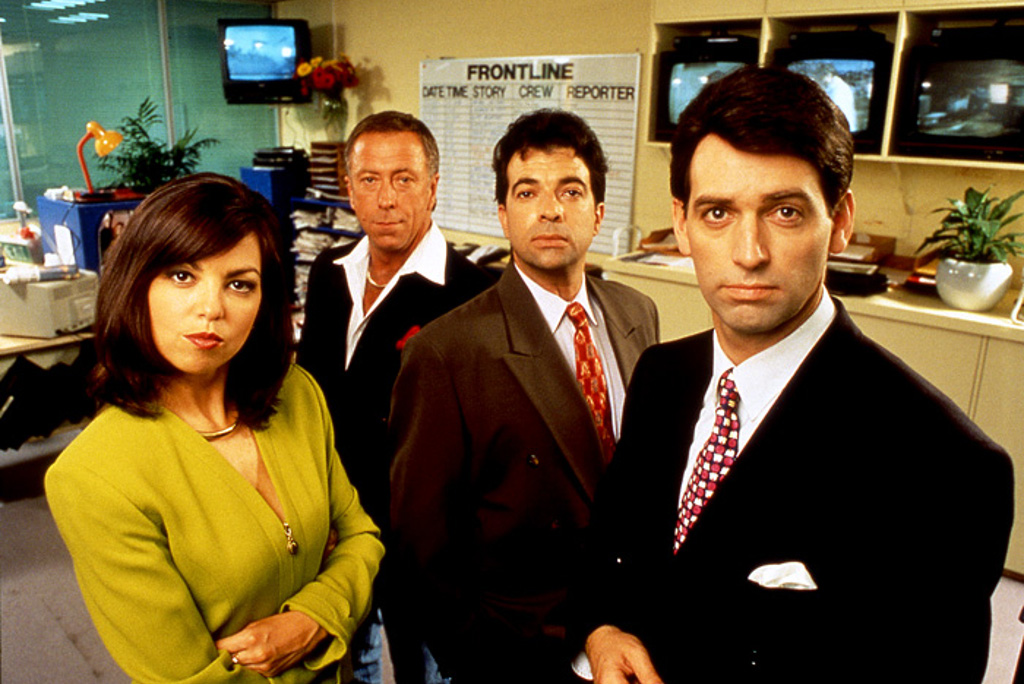
Between terrorist attacks, institutional abuses of power, excruciating political pageantry, the mainstreaming of bigotry, hate crimes, and (to a lesser extent) certain celebrity deaths, 2016 is widely acknowledged to be an old puke-soaked carnival ride that’s spun out of control. It’s threatening to hurl itself out of the showgrounds and into a flaming dumpster full of empty goon bags, and we seem to have absolutely no way of getting off.
Because of all this, it’s often easy to forget about the people charged with investigating, deciphering and delivering this news to us. Australia is blessed with a great number of impressive journalists who not only report on horrific events (events which would have been much worse kept under wraps), but also occasionally bring us inspiring or funny stories to cut through the pain.
Before The Walkley Foundation’s Storyology festival, we got in touch with a few of these journos to ask what they saw as the biggest or most important stories of the year. Shocker: not one of them mentioned Harambe.
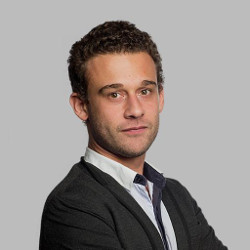
Paul Farrell
Reporter at Guardian Australia
“The Panama Papers was a real game changer for collaborative, transnational investigative journalism that had real bite. The investigation saw hundreds of journalists collaborate digitally to produce a world-class series of reports that had profound impact across the world. It was a real success story in an industry that sadly has far few successes than it should.
“As one of the reporters who worked on the project for The Guardian, I had the fortune of seeing first-hand how the investigation came together. It offered fantastic opportunities to collaborate with other news organisations both in Australia and abroad, and really showed what news organisations can achieve when they work together.”
Personal highlight:
“I’ve spent a lot of time investigating Australia’s immigration detention system, and it’s one of the things I’m most proud of doing since I’ve been working as a reporter. I’ve reported on mismanagement, allegations of fraud and appalling treatment of asylum seekers. It’s an issue that often involves difficult reporting dilemmas, with so much information out of reach to the public.
“It hasn’t been without risks; the Australian Federal Police have investigated my sources to try and prosecute them, and they’ve gone as far as accessing my phone records in their pursuit. Governments really don’t want reporters poking around in this area, but it’s unquestionably one of the most important stories of our times.”
James Colley
Creator of The Backburner, writer at The Weekly and researcher at Gruen
“It absolutely has to be Trump, doesn’t it? I don’t want it to be. I’d rather this had never happened at all but here we are — as we’ve all found out this year if you stare into the abyss long enough eventually the abyss runs for office. It’s the rise of Trump and the Brexit vote — neither are good for the world, of course, but I’m a satirist and I bet against humanity for the ease of my work day. Beyond that, it’s just fascinating to see world powers scare themselves to the point that, not only do they shoot themselves in the foot, they fire round after round into their whole leg.
“It’s like watching a car crash in slow motion except that a car crash is an accident and this is voluntary. The people are choosing this path (though, to be fair, they’re often being sold false pretences). It’s not so much like a child trying to drink the stuff under the sink and having to be told to stop; it’s an adult who considers all the possible choices of beverage and decides that the only way to really clean the perceived toxins in their body is to chug the drain cleaner.”
Personal highlight:
“Depending on the work, The Backburner is somewhat a war of attrition. I’m proud of getting it out every morning even when I’m staring at a blank screen through bloodshot eyes. We have an unofficial slogan among the writers to “Pray For News” and some mornings your prayers are just going unanswered.
“Writing with The Weekly has also afforded me a lot of opportunities to learn from an incredible team and develop my own writing along topics that were incredibly important to me. The foremost in my mind would be from the first season when we ran a piece on Indigenous incarceration rates in Australia — which, sadly, has become more and more relevant. I think it was a bold topic for a young comedy show to try and tackle, an immensely important area of discussion and it took a lot of work from an amazing team to get it together. I’m exceedingly proud to have been a part of that.”
Heidi Pett
Executive producer at FBi Radio
“For me, the most important stories of the year have been two we already knew about. Breaking a story is great, but it’s been so interesting to see the role that video has played in re-framing our reaction to police shootings in America, and the abuse of children in detention here in Australia. We knew about both those issues. There are entire organisations dedicated to counting the number of people killed by police in the US, and there were already loads of media reports — and of course reports to government — about what was happening at Don Dale. But it wasn’t until people saw footage of those shootings, of children being teargassed and tied to chairs, that we had any reaction or widespread coverage. It’s really got me thinking about the power of imagery.
“This is obviously not a great realisation for a radio journalist, but here we are.”
Personal highlight:
“Earlier this year I drove to Broken Hill to make a documentary about lead pollution and industrial capture in the birthplace of the largest mining company in the world. I slept in my car at a truck-stop for two weeks and spent the evenings logging tape at The Palace Hotel. I have decided that all I really want to do for the rest of my life is fill a van with audio equipment and travel around Australia finding stories.
“I learned so much about loyalty, identity and people’s ability to construct the version of reality they need to live in, and came away with a piece of radio I’m really proud of.”
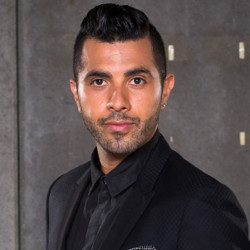
Patrick Abboud
Reporter, producer and presenter at The Feed
“This is an incredibly difficult question — there’s been so many moments where you see people share a part of themselves that has such great impact on the rest of the world. That’s what inspires me to keep doing what I do, I guess. [I want] to tell the stories that aren’t being told and take people inside worlds they never knew existed.”
Personal highlight:
“A story that resonates right now — I just put it to air a few weeks ago — is about Australia’s first openly gay Imam (that’s the equivalent of a priest in Islam). He entrusted me to share his secret publicly for the first time and he actually came out on camera in order to help other young LGBTQI muslims who are struggling with the choice between their faith and sexuality.
“It was a decision that literally could have cost him his life. Where he comes from being gay is illegal and the crime is punishable by imprisonment at the very least — in some cases death. He also allowed us access to film inside the meeting of an underground network of LGBTQI closeted muslims that he runs across Australia.
“It was so genuinely rewarding to see the impact that story had afterwards. I had tonnes of emails from other young gay muslims thanking SBS for putting that to air. There were equal amounts of hate from the community but that’s the reason it was so important. It’s a conversation that they themselves couldn’t have and by doing the story we gave voice to many that feel silenced by their own people. It’s about empowerment and making people feel safe to speak out — something I’m pretty passionate about. Definitely one I won’t forget.”
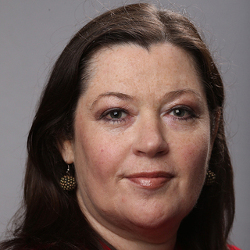
Karen Middleton
Chief Political Correspondent at The Saturday Paper
“It’s been a huge year for news — and much of it not good — so it’s hard to nominate a single story. I think I’d nominate two issues as being of equal importance: the increasing incidence of violent attacks in public places across the world in the name of a warped, radical ideology; and the US presidential election race becoming a battle between that country’s first female nominee and a polarising, outspoken business mogul and reality TV host who has defied predictions about his prospects and whose own party is not wholeheartedly behind him. Both have enormous implications for the direction of events in the world in the next few years.”
Personal highlight:
“Probably the story of which I’ve been proudest so far this year has been a piece I wrote for The Saturday Paper on April 2 entitled ‘Australia’s indigenous youth suicide crisis’. It detailed the horrifying incidence of indigenous suicide among children and young people in the north of Western Australia. I had strong feedback on the piece, which described young children in a school playground playing a game they called “hangsies”, such was the normalisation of the incidence of suicide. I was invited to talk about it on ABC Radio and it’s an issue I care deeply about.”
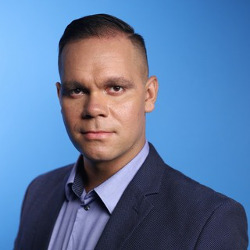
Allan Clarke
Indigenous Affairs Reporter at BuzzFeed
“The past year has been incredible in terms of Indigenous Affairs reporting and I really feel that the mainstream media (not all though!) have finally cottoned on to the importance of telling stories from a grassroots perspective. I think the Don Dale story is the biggest of the year. It has captured the entire country’s attention and I hope that momentum and outrage remains and kicks off an ongoing conversation that we, as Australians, need to have if we are ever going to mature as a nation. We need to be brutally honest with each other and start righting past wrongs, that footage of Aboriginal kids being brutalised at Don Dale really summed up how Australia treats its Indigenous people — cruelly and coldly.”
Personal highlight:
“For about six years I have been reporting on the 1988 unsolved murder of Aboriginal teenager Mark Haines in Tamworth in regional NSW. I am incredibly inspired by Don Craigie, the boy’s uncle, and his unwavering search to find the killer. Mark’s parents are both dead and Don is the last one left alive to remember the teen and has never given up. Through my reporting, the police have received tip-offs from the public and are now investigating new leads in the case. It’s incredible considering it was a cold case was so long. I am proud of the reporting and I am determined to help Don get justice.”
Caro Meldrum-Hanna
Reporter at Four Corners
Caro wasn’t asked what she felt was the biggest story of the year. We did, however, talk at length about her enormous investigation into the abuse carried out at Don Dale Youth Detention Centre. Considering it resulted in a royal commission (announced in less than 24 hours), put a minister out of a job, and continues to pose enormous questions for the nation, I think it’s certainly in consideration for the title.
Personal highlight:
“The Lynette Daley story [the woman found dead on a NSW beach earlier this year] was enormously personally satisfying for me. It was the struggle of her family — they were so exhausted, distressed and traumatised. They couldn’t believe that these men [who caused he massive internal injuries through sex acts] were able to do this. There was no day in court. Their daughter meant that little to Australia. The law didn’t even apply to her — she was a loser, she was a drunk. Well, she wasn’t.
“It was a real privilege telling their story, but it was ugly too. It was hard for them to talk about. They were haunted by it. They had constant nightmares of her running towards her screaming ‘help me, mum’. We were worried that people would think ‘oh, another shocking moment in our Aboriginal history’; that no one would care. It was the exact opposite. The country embraced that family and everyone was talking about that program. We were able to show the country who she was. She wasn’t a loser, she was a mum. Yes, she had her problems, but she was a good person. By giving someone back their humanity, then allowed the country to care about her and see who she was.”